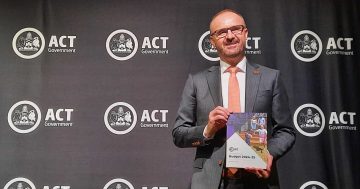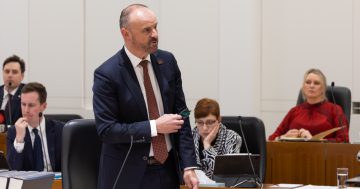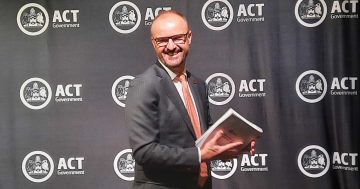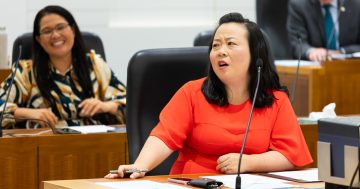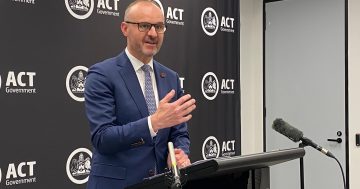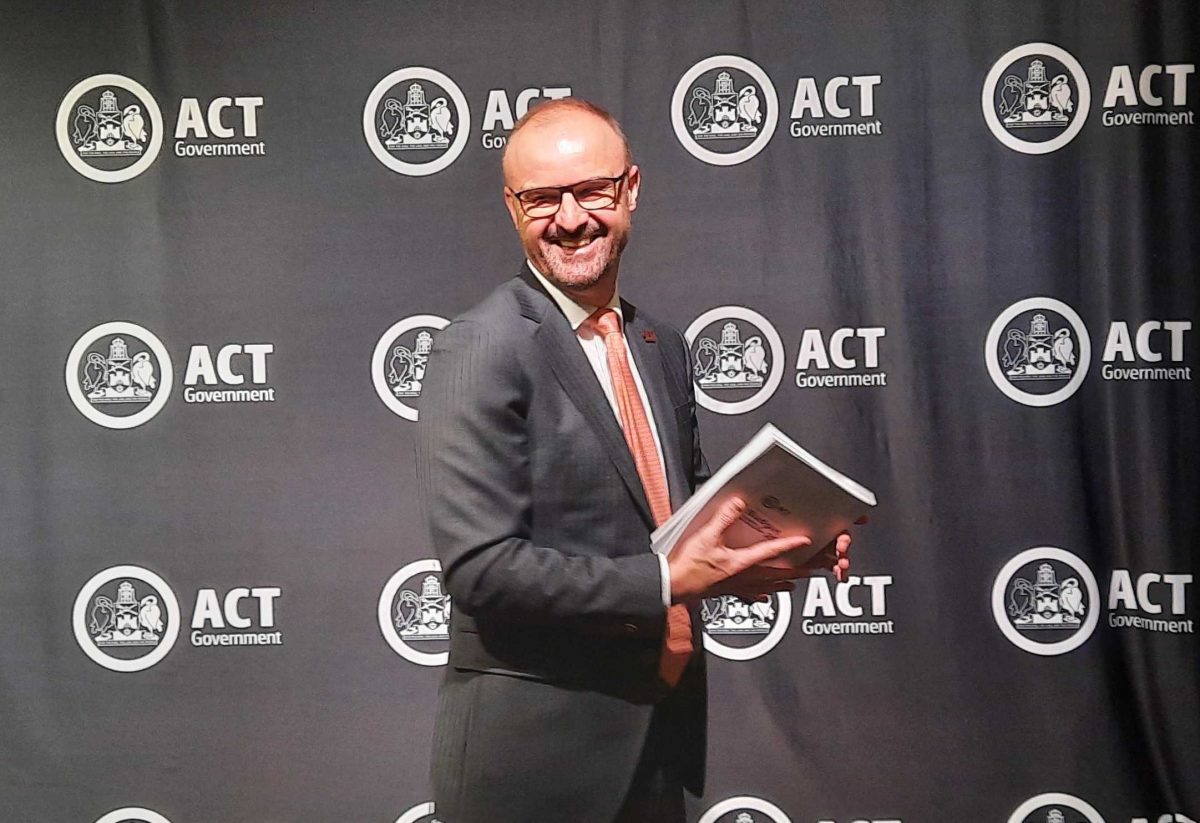
Andrew Barr with the 2024 Budget. It’s smiles now, but cutesy time is coming to an end. Photo: Ian Bushnell.
Let’s take a walk down history’s page for a second.
If you’re old enough to remember the 1996 Federal election, one of the issues was the deficit.
Opposition Leader John Howard said there was one; he just didn’t know how big it was.
Prime Minister Paul Keating said there wasn’t one. And even better, there was a surplus.
It turns out, there was a deficit that year. A bloody big one. About $9 billion. That’s in 1996 money, remember, which was enough to buy a house in Sydney with a backyard.
Had Keating won that election, it would have been a sight to behold his gymnastics explaining, “Oh! That deficit!”
Which brings us to 2024 in the ACT.
It is very clear that not one of the three major parties in this election – Labor, the Greens and the Canberra Liberals – have grasped the dire state of ACT finances. They’re a pack of Keatings, without the nice suits and the clock fetish.
It is clear that all three leaders are whistling past the graveyard, pretending that all is well. All is not well.
We’re in a pickle. A very brown pickle. Reality is going to bite us very hard.
This is first going to be obvious to every ratepayer not long after the winner gives their tedious “governing for all Canberrans” victory speech, but there have been clues.
In case you missed it, on 16 July there was a fascinating article about rates, titled Tax reform doubts: Rates rises not enough to cover stamp duty losses, says Budget review.
That’s not true.
The article was about rates (that bit is true) but because it was about rates it was dull as batpoop (sorry, Bushy), and because it was dull, you may not have read it. But a few points need to be brought to the surface again. Such as, the government’s experiment to replace stamp duty with rates has hit a bump in the road.
This matters.
As the article notes: “The increase in rates [3.75 per cent this year] will not be enough to cover the loss in revenue … It is not known how much rates will rise in Stage 4, which kicks in in 2026-27.”
In other words, despite going up 3.75 per cent, that wasn’t enough. Ask yourself: will the government pull back spending or find other ways to trouser your money? (Hold that thought for a moment.)
Then: “The Budget is becoming increasingly vulnerable, with net debt expected to increase by 70 per cent over the forward years to $12 billion in 2027-28, and interest payments forecast to reach $514 million in 2024-25 and $832 million in 2027-28.”
If you’re playing at home, that’s an increase in interest payments from about $1.4 million a day to about $2.28 million a day.
“This is $127.2 million higher than the estimated 2023-24 outcome and is forecast to increase by a further $318.3 million over the Budget and forward years.”
In other words, not only is there a revenue shortfall, but the money we’re paying out is getting larger at the same time as spending is going up. Translation: this is going to get worse.
Then comes the worse bad news. The kicker: “The review says general rates are not rising quickly enough to replace the amount of revenue lost from changes in commercial and residential conveyance thresholds and rates”.
The question for ratepayers is, when the election is done and dusted, who do you think the government is going to clock in the pocket to recoup the missing moolah from rates?
The review says either the government is backpedalling on its tax reform program by not increasing rates sufficiently to make up for the reduction in stamp duty or it is not being transparent about its plans for Stage 4 which commence in 2026-27.
Of the two options, what’s more likely? Backpedalling on a flagship 20-year project or hiding tax increases until after the 19 October election?
That’s not a toughie, is it?
And remember, the Canberra Liberals say they’ll cap rate increases at 2.2 per cent.
The fact is, no matter the party or coalition of MLAs that claims power on 19 October, we can’t afford their promises because we are living beyond our means now, before their splurge. And things aren’t that great.
It is almost mathematically impossible for the Canberra Liberals to win on 19 October.
It would be hilarious for the Greens to be the major party in coalition with Labor; for a start, the mass resignations from Labor would throw the Assembly into disarray and that’s always fun, but don’t count on a Greens’ plurality.
Whatever the outcome, the fiscal reality is becoming clearer and the warnings are getting louder.
Who will win this debate? The fiscal conservatives. The Cassandras. The only issue is when.
Who will win the election? Andrew Barr will almost certainly remain as Chief Minister. But that doesn’t mean he’s right.
In 1996, we didn’t get to see Keating explain the deficit he denied existed.
Will Andrew Barr be here long enough to explain why the brown stuff’s hitting the whirly thing?













